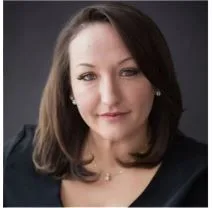How Smart Founders Build Financial Safety Nets in Unpredictable Markets?
Entrepreneurs are no strangers to risk, but in today’s climate of economic uncertainty, even seasoned business owners are being forced to think beyond traditional revenue streams. The smart ones? They’re building financial safety nets, strategic buffers that protect both their businesses and personal wealth from market turbulence, inflation shocks, and shifting consumer behavior.
These aren’t emergency funds in the usual sense. They’re intentionally designed financial systems powered by diversification, automation, and intelligent tools, allowing founders to stay resilient even when the business cycle takes an unexpected dip.
Bringing CFO Precision to Asset Allocation
Furqan Ajmal, Chief Financial Officer (CFO) at Mark Logix, exemplifies the methodical approach. Rather than reacting to market volatility, Furqan has structured a repeatable framework that allocates a portion of profits into diversified, lower-risk investments. These include REITs, precious metals, dividend stocks, and commodity funds.
“We treat our financial buffer like we treat our budgets, reviewed, optimized, and guided by performance indicators,” Furqan explains. Using advanced charting tools, his team closely watches sector strength, RSI trends, and momentum signals. The focus is always on mitigating downside while maintaining liquidity. High-volatility assets are capped, and everything is rebalanced monthly to prevent overexposure.
His view is clear: business operations fund growth, but smart investing sustains stability.
Stability Through Conservative Investment in Hospitality
Silvia, Founder & CEO of Stingray Villa, has a slightly different, but equally calculated, strategy. Operating in the hospitality sector, she understands the rollercoaster of seasonal demand and external threats like pandemics or travel bans. To keep her business and personal finances strong, Silvia built a “resilience portfolio” made up of bonds, low-volatility ETFs, and gold-backed securities.
She adjusts her allocations quarterly based on macroeconomic signals like interest rate trends and commodity forecasts. “It’s a slow-growth strategy, but one that gives me peace of mind,” she says. Her system blends short- and long-duration assets, with an eye toward capital preservation more than aggressive returns. This ensures her business isn’t forced into reactive decision-making when bookings drop or unexpected costs arise.
Tech Entrepreneur Uses Automation and Index Funds for Passive Protection
In the tech and content space, Joe Lee, CEO & Founder of Clan Name Ideas, represents a new wave of digital entrepreneurs who think long-term from day one. While building a platform for gaming enthusiasts, Joe also set up a financial safety net behind the scenes—one that relies heavily on passive income from low-cost index funds and robo-advisory services.
“Automation has been key for me,” Joe says. He allocates a fixed percentage of monthly profits to diversified portfolios through platforms that rebalance based on risk tolerance. Rather than chasing short-term gains, his focus is on consistency and insulation. “I don’t want to be in a position where I have to pause product development because revenue dips temporarily. The financial safety net helps me keep moving.”
His model relies on simplicity: recurring contributions, diversified exposure, and minimal hands-on management. It’s not glamorous, but it’s deeply effective for long-term resilience.
What Ties These Founders Together
Although operating in very different sectors, finance, hospitality, and tech, Furqan, Silvia, and Joe share a critical understanding: unpredictable markets require intentional buffers. These founders don’t treat financial safety as an afterthought. It’s built into the structure of how they lead and grow their businesses.
Here are a few lessons their approaches highlight:
- Diversify with intention: From dividend stocks to government bonds, these founders spread their risk across asset classes.
- Track with data, not emotions: Whether using robo-advisors or RSI charts, every decision is data-informed.
- Keep liquidity available: Each portfolio is structured to be flexible, capital can be accessed if needed, without penalty or delay.
- Think long term: None of these entrepreneurs are trying to “beat the market.” They’re building foundations strong enough to weather its storms.
In a world where market swings and economic surprises are increasingly common, founders like these aren’t just surviving, they’re preparing to thrive. Their strategies offer a blueprint for entrepreneurs everywhere to build lasting, resilient success.






